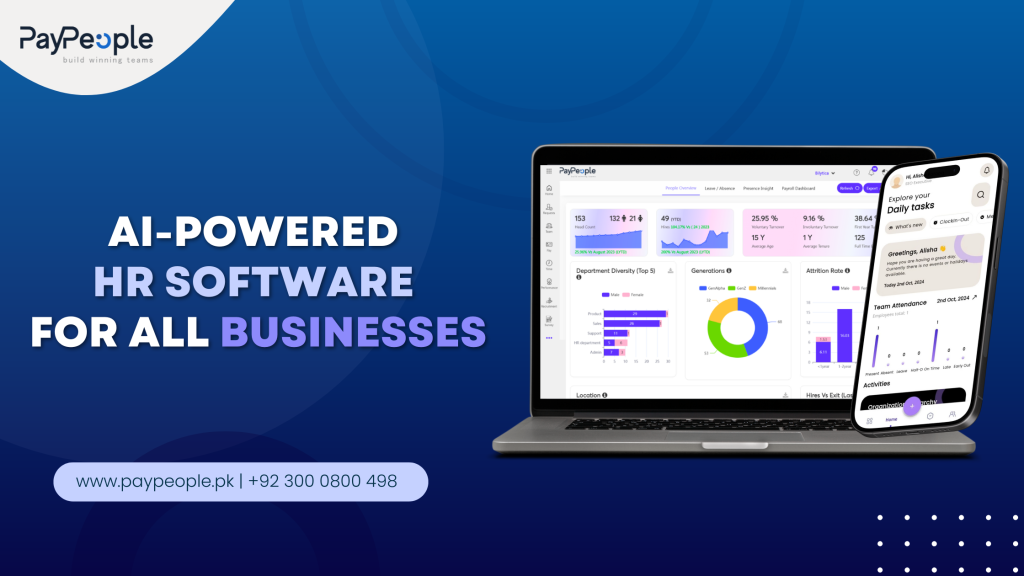Paypeople # 1 is one of the top employment law rights that is applicable to workplaces in which employees are entitled to an adequate expectation of privacy regarding certain aspects of their jobs. Employment law plays an essential role in protecting the privacy of employees by creating regulations, standards, and guidelines governing the collection, use, and security of personal information within the workplace. In the article, we’ll look at how employment law protects the privacy rights of employees by examining the most important legal principles including compliance and the best guidelines for employers.
Click to Start Whatsapp Chat with Sales
Call #:+923000507555
Email: sales@Paypeople.pk
Paypeople # 1 employment law

Constitutional and Statutory Rights
employment law safeguards the privacy of employees through numerous statutory and constitutional clauses that restrict excessive searches, seizures illegal surveillance, as well as infringements on private privacy from employers. It is the Fourth Amendment of the U.S. Constitution that shields citizens from unreasonable seizures and searches conducted by authorities and statutes like the Electronic Communications Privacy Act (ECPA) and the Stored Communications Act (SCA) regulate data communications and electronic privacy in the workplace.
Notification and Consent
The employment law requires employers to give an employee notice regarding the use, collection, or disclosure of personal data and to obtain their informed consent when needed. Employers are required to inform employees of the kinds of personal information collected, the reasons that it will be employed, as well as any third parties with which they may share it. Employees have the option of accepting the processing and collection of their personal information and the right to withdraw their consent at any time as long as they comply with the legal requirements and business needs.
Policy for the Employee Handbook
Employers frequently adopt privacy guidelines and policies within employee handbooks in order to educate employees about their rights and obligations in relation to privacy at work. These policies could cover issues like the use of email and the internet and monitoring social media workplace surveillance, as well as personal device guidelines. By creating clear and lucid policies, employers will ensure that employees are aware of their privacy rights as well as the acceptable boundaries within the workplace.
Communication and monitoring via electronic
employment law regulates employers’ surveillance of electronic communications as well as activities at work to ensure that they balance security and productivity while respecting the privacy rights of employees. It is the ECPA and SCA that place restrictions on employers’ monitoring of electronic communications such as telephone calls, emails, and even computer usage, with or without consent from employees. Employers must get consent from employees or give notice prior to conducting surveillance of electronic communications and must respect the privacy of employees.

Workplace surveillance
Payroll Management is permitted to utilize surveillance cameras access control systems and other monitoring technology to improve the safety and security of employees in the workplace. However, the law on employment imposes restrictions on the amount and extent of surveillance in the workplace to ensure the privacy rights of employees. Employers must have valid business reasons to conduct surveillance like protecting against theft or assuring employee security, and must weigh the interests of employees with reasonable privacy expectations in places like restrooms, breakrooms, and private workplaces.
Background checks and screenings
Background checks and screening: Employers can conduct background checks as well as screening of applicants to jobs and employees to fulfill legitimate business requirements like assessing their potential employees’ qualifications, and assuring security in the workplace. However, the law governing employment obliges employers to get permission from employees and applicants prior to conducting background checks. inform them regarding their rights. They must also be in compliance with any applicable laws like FCRA. FCRA as well as state-specific regulations for background checks.
Medical Exams and Drug
Testing Employers can require medical or drug tests of employees in safety-sensitive job positions or in conjunction with workplace wellness programs in accordance with the requirements of employment law and privacy security. Medical examinations and drug testing are required to be related to work, consistent with business needs and uniformly applied to all employees who are in similar positions. Employers should also make reasonable accommodations for employees who have disabilities when they take tests or exams.
Data Security and Confidentiality
HRIS systems impose obligations on employers to ensure the security and confidentiality of employee’s personal data that is collected and maintained during the process of their employment. Employers must put in place safeguards to protect against unauthorized access to, use, or disclosure of sensitive information about employees and must comply with the laws governing data privacy, like those governing data privacy, such as the GDPR, CCPA, and Health Insurance Portability and Accountability Act (HIPAA) in the event that they are applicable. Employers must also inform employees of a breach in their data or security breach that involves their personal data.
The right of privacy for employees in Off-Duty Conduct
The employment law protects employees’ right to be protected in their off-duty behavior and activities in the outside world but is subject to certain limitations and exceptions. Employers are generally not able to disqualify or dismiss employees for lawful off-duty behavior, such as participating in legal activities or the expression of personal opinions in the event that it adversely interferes with the legitimate business interests of the employer. However, employers might have legitimate reasons for monitoring any off-duty activity that could affect the workplace, for example, posts on social media that are negative for the employer or could pose security risks.
Non-Disclosure and Confidentiality agreements
Employers typically insist on employees signing non-disclosure agreements (NDAs) and confidentiality agreements to safeguard sensitive trade secrets and information. These agreements require employees to ensure the confidentiality of confidential information and not divulge information to unauthorized parties. Employment law stipulates that NDAs are reasonable in terms of scope as well as duration and geographical limitations and should not restrict the rights of employees or hinder their ability to participate in legal actions.
Conclusion
Employment law plays an essential role in ensuring employees’ privacy rights in the workplace and setting legal guidelines and standards for the collection, use, and security of personal information. By adhering to the legal requirements as well as adopting privacy policies and security measures, and ensuring that employees are protected by their personal privacy rights, businesses are able to establish a culture of respect, trust, and compliance that fosters an enjoyable work environment for everyone.
Click to Start Whatsapp Chat with Sales
Call #:+923000507555
Email: sales@Paypeople.pk
employment law
employment law
employment law
employment law
We are one of the best How does employment law protect employees' rights to privacy? Price in Pakistan in Azad Kashmir, Bagh, Bhimber, khuiratta, Kotli, Mangla, Mirpur, Muzaffarabad, Plandri, Rawalakot, Punch, Balochistan, Amir Chah, Bazdar, Bela, Bellpat, Bagh, Burj, Chagai, Chah Sandan, Chakku, Chaman, Chhatr, updated on 2025-07-16T00:24:52+05:00 Dalbandin, Dera BugtiBarcode Shop offer lowest How does employment law protect employees' rights to privacy? Price Face Recognition in cities Dhana Sar, Diwana, Duki, Dushi, Duzab, Gajar, Gandava, Garhi Khairo, Garruck, Ghazluna, Girdan, Gulistan, Gwadar, Gwash, Hab Chauki, Hameedabad, Harnai, Hinglaj, Hoshab, Ispikan, Jhal, Jhal Jhao, Jhatpat, Jiwani, Kalandi, Kalat, Kamararod, Kanak, Kandi, Kanpur, Kapip, KapparWe can deliver Face Recognition in Karodi, Katuri, Kharan, Khuzdar, Kikki, updated on 2025-07-16T00:24:52+05:00 Kohan, Kohlu, Korak, Lahri, Lasbela, Liari, Loralai, Mach, Mand, Manguchar, Mashki Chah, Maslti, Mastung, Mekhtar, Merui, Mianez, Murgha Kibzai, Musa Khel Bazar, Nagha Kalat, Nal, Naseerabad, Nauroz Kalat, Nur Gamma, Nushki, Nuttal, Ormara, Palantuk, Panjgur, Pasni, Piharak, Pishin, Qamruddin Karez, Qila Abdullah, Qila Ladgasht and this was updated on 2025-07-16T00:24:52+05:00 We also deal with How does employment law protect employees' rights to privacy? Price in Qila Safed, Qila Saifullah, Quetta, Rakhni, Robat Thana, Rodkhan, Saindak, Sanjawi, Saruna, Shabaz Kalat, Shahpur, Sharam Jogizai, Shingar, Shorap, Sibi, Sonmiani, Spezand, Spintangi, Sui, Suntsar, Surab, Thalo, Tump, Turbat, Umarao, pirMahal, Uthal, Vitakri, Wadh, Washap, Wasjuk, Yakmach, Zhob, Federally Administered Northern Areas/FANAWe are already sent Face Recognition to these places – Astor, updated on 2025-07-16T00:24:52+05:00 Baramula, Hunza, Gilgit, Nagar, Skardu, Shangrila, Shandur, Federally Administered Tribal Areas/FATA, Bajaur, Hangu, Malakand, Miram Shah, Mohmand, Khyber, Kurram, North Waziristan, South Waziristan, Wana, NWFP, Abbottabad, Ayubia, Adezai, Banda Daud Shah, Bannu, Batagram, Birote, Buner, Chakdara, Charsadda, Chitral, Dargai, Darya Khan, Dera Ismail Khan and this was updated on 2025-07-16T00:24:52+05:00 we are planning to open a branch office of in Drasan, Drosh, Hangu, Haripur, Kalam, Karak, Khanaspur, Kohat, Kohistan, Lakki Marwat, Latamber, Lower Dir, Madyan, Malakand, Mansehra, Mardan, updated on 2025-07-16T00:24:52+05:00 Mastuj, Mongora, Nowshera, Paharpur, Peshawar, Saidu Sharif, Shangla, Sakesar, Swabi, Swat, Tangi, Tank, Thall, Tordher, Upper Dir, Punjab, Ahmedpur East, Ahmed Nager Chatha, Ali Pur, Arifwala, Attock, Basti Malook, BhagalchurFace Recognition in Bhalwal, Bahawalnagar, Bahawalpur, Bhaipheru, Bhakkar, Burewala, Chailianwala, Chakwal, Chichawatni, Chiniot, Chowk Azam, Chowk Sarwar Shaheed, Daska, Darya Khan, Dera Ghazi Khan, Derawar Fort, updated on 2025-07-16T00:24:52+05:00 Dhaular, Dina City, Dinga, Dipalpur, Faisalabad, Fateh Jang, Gadar, Ghakhar MandiFace Recognition How does employment law protect employees' rights to privacy? Price s Demands very high in Gujranwala, Gujrat, Gujar Khan, Hafizabad, Haroonabad, Hasilpur, Haveli Lakha, Jampur, Jhang, Jhelum, Kalabagh, Karor Lal Esan, Kasur, Kamalia, Kamokey, Khanewal, Khanpur, Kharian, Khushab, Kot Addu, Jahania, Jalla Araain, Jauharabad, Laar, Lahore, Lalamusa, Layyah, Lodhran, Mamoori, Mandi Bahauddin, Makhdoom Aali, Mandi Warburton, Mailsi, Mian Channu, Minawala, Mianwali, Multan, Murree, Muridke, Muzaffargarh, Narowal, Okara, Renala Khurd, Rajan Pur, Pak Pattan, Panjgur and this was updated on 2025-07-16T00:24:52+05:00 and current How does employment law protect employees' rights to privacy? Price of is Rs 100 in Pattoki, Pirmahal, Qila Didar Singh, Rabwah, Raiwind, Rajan Pur, Rahim Yar Khan, Rawalpindi, Rohri, Sadiqabad, Safdar Abad – (Dhaban Singh), Sahiwal, Sangla Hill, Samberial, Sarai Alamgir, Sargodha, Shakargarh, Shafqat Shaheed Chowk, Sheikhupura, Sialkot, Sohawa, Sooianwala, Sundar (city), Talagang, Tarbela, Takhtbai, Taxila, Toba Tek Singh, Vehari, Wah Cantonment, Wazirabad and this was updated on 2025-07-16T00:24:52+05:00 Software solutions are widely available with Price updated on 2025-07-16T00:24:52+05:00 in Sindh, Ali Bandar, Baden, Chachro, Dadu, Digri, Diplo, Dokri, Gadra, Ghanian, Ghauspur, Ghotki, Hala, Hyderabad, Islamkot, Jacobabad, Jamesabad, Jamshoro, Janghar, Jati (Mughalbhin), Jhudo, Jungshahi, Kandiaro, Lahore, Kashmor, Keti Bandar, Khairpur, updated on 2025-07-16T00:24:52+05:00 Khora, Klupro, Khokhropur, Korangi, Kotri, Kot Sarae, Larkana, Lund, Mathi, Matiari, Mehar, Mirpur Batoro, Mirpur Khas, Mirpur Sakro, updated on 2025-07-16T00:24:52+05:00 Mithi, MithaniThe Barcode Shop deliver high quality Face Recognition in updated on 2025-07-16T00:24:52+05:00 Moro, Nagar Parkar, Naushara, Naudero, Noushero Feroz, Nawabshah, Nazimabad, Naokot, Pendoo, Pokran, Qambar, Qazi Ahmad, Ranipur, Ratodero, Rohri, Saidu Sharif, Sakrand, Sanghar, Shadadkhot, Shahbandar, Shahdadpur, Shahpur Chakar, Shikarpur, Sujawal, Sukkur, Tando Adam, Tando Allahyar, Tando Bago, Tar Ahamd Rind, Thatta, Tujal, Umarkot, Veirwaro, Warah and this was updated on 2025-07-16T00:24:52+05:00
13-2-2024


